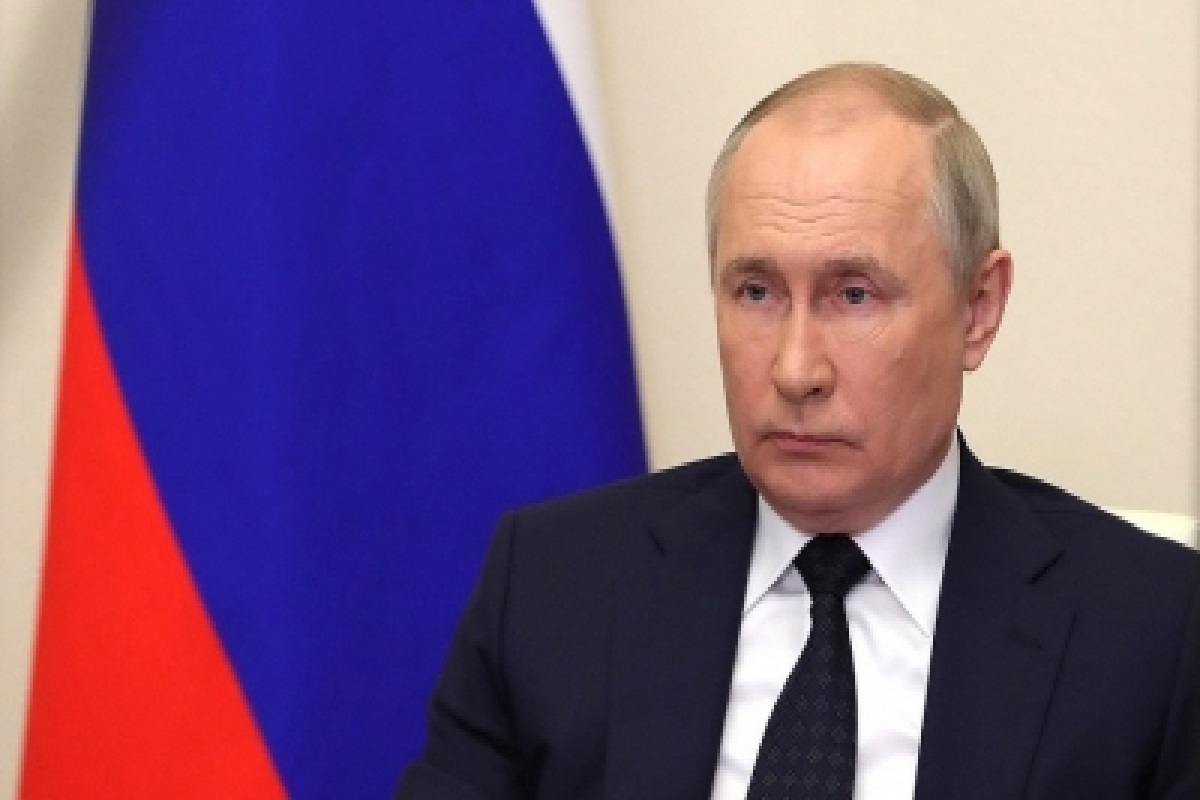Trump tells Putin not to escalate Ukraine war in first phone conversation after winning elections
During the phone call, Trump also reminded the Russian President of US military's presence in Europe.
Nine months into the invasion of Ukraine, Moscow took the difficult decision to retreat from Kherson, the only regional capital Russian forces had taken since 24 February.

[Photo: IANS]
When Oleksiy Arestovich, an adviser to the Ukrainian President, said earlier this week that “Vladimir Putin is living in fear for his life as his army retreats… there is no forgiveness for tsars who lose wars”, he could well have been playing mind games. But there is no denying the fact that the pressure is mounting on the Russian President after weeks of gruelling military setbacks and domestic demands to end mobilisation.
Nine months into the invasion of Ukraine, Moscow took the difficult decision to retreat from Kherson, the only regional capital Russian forces had taken since 24 February. Selling this move as a tactical ploy is clearly not working for the Kremlin, but the graver issue which confronts President Putin is the demand by regional officials for an end to mobilisation.
The push for more troops has seen an exodus of young working males to neighbouring countries and is “affecting the psychological state of society”, according to Emilia Salbunova, a member of the Karelia Legislative Assembly.
Advertisement
Ms Salbunova and other regional leaders are pressing Mr Putin to reverse military measures which have become “a source of increased anxiety in Russian families”. That this is playing out against the backdrop of the hit taken by Russia’s economy due to the mass exodus of Western companies from that country has led many to express the view that the first cracks are developing in the Moscow regime.
For example, a recent programme on state TV had experts debating whether the country should go for large-scale nationalisation. But Russians are suddenly realising that they depend completely on Western technologies. “If everything is nationalised, Russians will have nothing to drive, nothing to make calls with.”
Till recently, despite the mutterings within the establishment, the inter-elite consensus, say, experts, was based on a well-established set of beliefs subscribed to not just by the siloviki (security service officials) but by the pragmatist technocrats too: That the West will do everything it can to bring Russia to its knees; that since Russia has begun this war, it must win it; and that any compromises Russia makes will be used against it, and are therefore not an option.
The widespread discontent caused by the chaotic implementation of mobilisation and the military reverses on the battlefield may mark the beginning of that consensus breaking down. Tatiana Stanovaya of the Carnegie Endowment for International Peace, however, says there is still the curious case of Russia’s “missing peacekeepers”.
Which is to ask, why is the country’s power elite struggling to break with President Putin? The answer to that question lies primarily in the feeling of collective anger among the elite at the West which, they believe, pushed Russia so far that it had no choice but to act.
“In recent weeks, however, this belief has been rocked by the humiliating Russian retreat from the Kharkiv region, the partial mobilisation that looks likely to become a full mobilisation, and growing doubts over whether Russia can actually win this war,” writes Stanovaya. President Putin’s predicament is that there is little he can do about it.
Advertisement